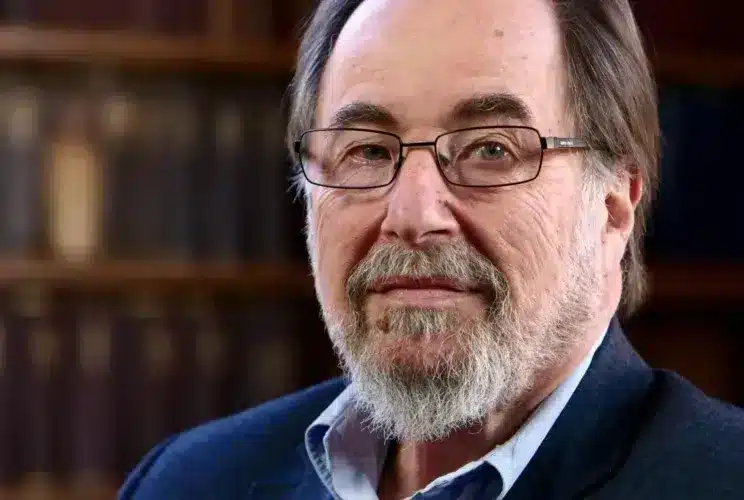David Baltimore: Trailblazer in Virology and Nobel Laureate

David Baltimore (born 7 March 1938) is an American biologist. He was awarded the Nobel Prize in Physiology or Medicine in 1975. He is known for his contributions to the field of virology and his role in the discovery of reverse transcriptase, a critical enzyme in the replication of retroviruses like HIV.
Life and Career
He was born on 7 March 1938, in New York, U.S. In 1960, he graduated from Swarthmore College with high honors. He worked with Dr. George Streisinger at Cold Spring Harbor Laboratories during his college days which inspired him to take up molecular biology.
He went to MIT to study biophysics but quickly developed an interest in animal virology. After that, he took a course at Cold Spring Harbor on animal viruses taught by Dr. Richard Franklin and Dr. Edward Simon. His thesis work at Rockefeller Institute was heavily influenced by Franklin. In 1964, he got his doctorate.
Also, he studied enzymology with Dr. Jerard Hurwitz at the Albert Einstein College of Medicine. After completing his Ph.D., he joined the faculty at MIT and later moved to the Salk Institute for Biological Studies in La Jolla, California. With his colleagues, he discovered how viral polyprotein precursors are proteolytically cleaved and showed how proteolytic processing plays a big role in the synthesis of eukaryotic proteins. His major work was discovering that polio produces its viruses as large polyproteins that are then processed into individual peptides. Baltimore and Huang discovered that VSV, an RNA virus, copies RNA through an enzyme (RNA-dependent RNA polymerase) without DNA and reproduces itself through this enzyme.
In addition to his work on reverse transcriptase, Baltimore has made significant contributions to the understanding of the genetic basis of cancer and the immune system. Baltimore has also been an influential figure in science policy and education. He served as the president of Rockefeller University from 1990 to 1991 and as the president of the California Institute of Technology from 1997 to 2006.
He has also been a prominent advocate for science education and research funding, and he has served on numerous government advisory committees related to science and health policy.
Award and Legacy
He was awarded the Nobel Prize in Physiology or Medicine in 1975, along with Howard Temin and Renato Dulbecco, for their work on the interaction between tumor viruses and the genetic material of the cell.
Renato Dulbecco: The Nobel Laureate Who Transformed Cancer Research
Observer Voice is the one stop site for National, International news, Sports, Editor’s Choice, Art/culture contents, Quotes and much more. We also cover historical contents. Historical contents includes World History, Indian History, and what happened today. The website also covers Entertainment across the India and World.

